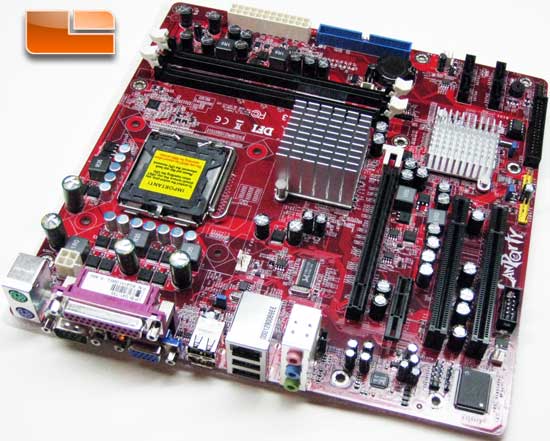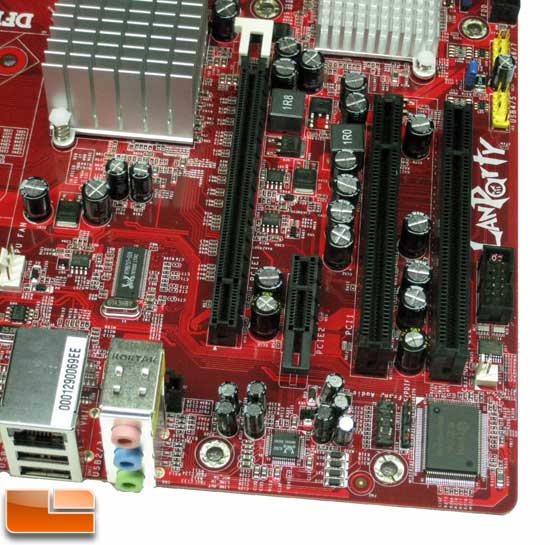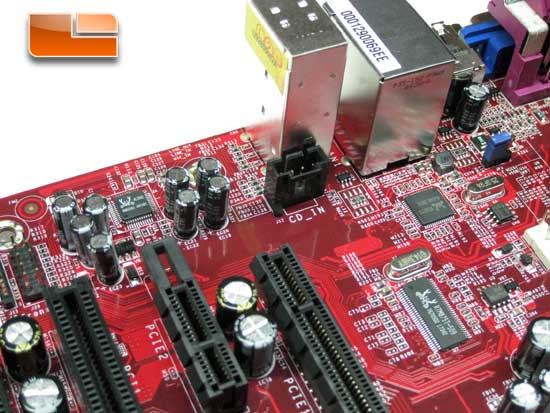|
|
DFI LANPARTY BI G41-T33 Review
[Abstract]
Final Thoughts and Conclusion The performance of the board was really pretty good! It was a little surprising to see how well it did in some of our tests. In everything but gaming,...
[Content] PCDigitalMobileGame
Board Layout

The first look at the board really shows us just how compact things are. However, as you use the board, you will see that compact does not mean crowded. The layout of the board was really good, and gave us no issues at all as we set the board up. We were very pleased with the layout.

The top right of the board is the location of our 24 pin power connector, which is on the edge of the board where it should be. Just underneath that, and also on the edge of the board, is the IDE connector. The DFI BI G41-T33 only has two DDR3 slots, which should be enough for what this board will be used for. The board supports up to 4GB of DDR3 memory at up to DDR3 1066Mhz. Right in the middle you have a heatsink that covers the G41 chipset. We did have heat issues with this board when raising the vcore. There is an alarm that goes off and is VERY annoying, but it certainly does get your attention! We added a fan to see if it helped with the heat issues that we were having, and it did not help at all. We checked the setup of our water cooler to make sure all was good, and it was. The contact between the heatsink and the chipset also seemed to be just fine, so the board just seems to run hot. It should be mentioned that as long as we did not increase the vcore we were fine.

The bottom right of the board is where we find our four SATA connectors which are SATA 1 compliant. We also have a floppy connector here, a couple of USB headers, the Clear CMOS jumper, and the ICH7 Southbridge, which is covered by a small aluminum heatsink.

There is one X16 PCI-E slot on the DFI BI G41-T33 motherboard located right here on the bottom left of the board. It is PCI-E 1.1 compliant. There are also two legacy PCI slots and one x1 PCI-E slot.

The audio chip is also located here. Audio is provided by the Realtek ALC 662, which supports 6-channel HD audio. The Realtek RTL8111C Gigabit LAN controller is also located here and supports the LAN features on this board.

The top right of the board is where we find the LGA 775 CPU socket as well as the 4-pin 12v connector. The 4-pin 12v is at the top of the board and at the edge, so it is out of the way and should pose no issues.

The back I/O panel includes your legacy PS/2 mouse and keyboard inputs, serial and parallel ports, VGA port, four USB ports, the LAN port and your audio ports.
That is all for the layout; let's take a quick look at the bundle and the BIOS.

|
|
|

